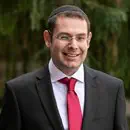Israeli officials voiced concern over the $110 billion deal US President Donald Trump reached with Saudi Arabia over the weekend, Defense News reported.
The agreement is the largest defense deal in history, and could rise to as much as $350 billion.
"This is a matter that really should trouble us," Energy Minister Yuval Steinitz said at the weekly Cabinet meeting Sunday. "We have also to make sure that those hundreds of billions of dollars of weapons to Saudi Arabia will not, by any means, erode Israel's qualitative edge, because Saudi Arabia is still a hostile country without any diplomatic relations and nobody knows what the future will be."
Intelligence Minister Yisrael Katz supported a regional coalition with Saudi Arabia, but said that there were limits to the amount of military aid to Saudi Arabia Israel could accept. "A regional coalition should be built under American leadership to block and push back Iran. At the same time Israel’s qualitative military edge should be maintained.”
"In the past, whenever such deals were announced Israel has strongly objected to them," Eytan Gilboa, senior research associate, the BESA Center for Strategic Studies at Bar Ilan University said.
Israel protested against the sale of military aircraft to Saudi Arabia under the Reagan administration.
According to Gilboa, Israel's lack of response to the current deal was not a sign that Israel's leaders approve of the deal, but that they do not want to antagonize Trump or sabotage the growing ties between the Jewish State and Saudi Arabia.
"This is a 10-year deal. Based on what has happened in the last few years, it is not certain who will control Saudi Arabia [in 10 years," Gilboa said. "The weapons may find themselves in the hands of hostile forces and this is a problem," he told Defense News.
Israeli Reserves Maj. Gen. Yaakov Amidror expressed optimism over the deal, however.
"Maybe [this deal] will lead to a different situation in the Middle East," Amidror told reporters. "In a way, in this new Middle East, in which we hope to cooperate with Arab states to contain the Iranians, I think it may add to self confidence of the Saudis in their part of this alliance."
